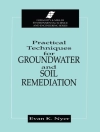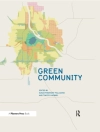This book is an interdisciplinary work that reveals the contemporary sustainability narratives in India within the context of various SDGs. Several case studies are presented, each of which sheds light on the challenges and constraints that are impeding the process of achieving SDGs and investigates potential long-term answers to socio-economic and environmental issues. Through empirical case studies from different parts of India, the book explores the current status of achieving sustainable development goals in India. The volume immensely benefits scientists, researchers, policymakers and practitioners as it offers a thematic and comprehensive understanding of challenges associated with mainstreaming SDGs at national, sub-national, and micro scales in India.
İçerik tablosu
1. Sustainability as the Development Paradigm: Evolving Frames and Interpretations (Venkatesh Dutta and Priyanka Ghosh).- 2. Poverty Alleviation with Sustainable Development in India (Ravi Patni).- 3. Summary Measures of Population Health: Healthy Life Expectancy in India in the Context of Sustainable Development (Shewli Shabnam and Nandita Saikia).- 4. Quality Education: Foundation for 16 SDGs (Apoorva Bhatnagar).- 5. Mapping the Provisions for Inclusive and Equitable Quality Education in the Indian Education Policy Documents: NEP 1968 to NEP 2020 (Chasul Phogat).- 6. Impact of the language of instruction for STEM subjects on student engagement, motivation, and further learning: A case study in Maharashtra, India (Darshan Gaikwad, Jyotsna A, and Mukund Nagarajan Rao).- 7. Clean Water and Universal Sanitation in an Era of Sustainable Development: Understanding the Challenges and Prospects for SDG 6 in the Ganga River Basin (Sya Buryn Kedzior).- 8. India’s Journey Towards Cleaner and Affordable Energy for Achieving SDG 7: Progress and Prospects (Anurag Piyamrao Wasnik).- 9. Fueling Women Lives with LPG: A Sociological Study of Fuel Use Pattern amidst Policy Intervention in Peri-Urban Areas of Uttar Pradesh (Manish K. Verma and Moni Chandra).- 10. In Quest of Decent Work: Female Migrant Domestic Employees from West Bengal, India (Anindya Basu and Diotima Chattoraj).- 11. The Impact of SDG-11 on Building Sustainable Cities: PPP Project Scenarios for Urban Infrastructure Development in India (Nimisha Jha).- 12. Water Sensitive Urban Design as a Driver for Accelerating Sustainable Urban Development in India (Rajiv Ranjan Mishra, Jyoti Verma, and Manju Rajeev Kanchan).- 13. SDG 13 and Climate Change in India (Tania Chakravarty and Priyanka Ghosh).- 14. Unsustainable, Imperial Dreams: What India’s Blue Economy Portends for “Life below Water” (Adam Jadhav).- 15. Re-inventing Methods of Preserving and Protecting Forests of India with Particular Reference to Odisha (Ankita Swetaparna).- 16. Green Diplomacy – A way to achieve SDG-17 (S. Venkata Krishnan).- 17. Sustainable Development Goals: Challenges, Opportunities, and the Way Forward (Priyanka Ghosh and Tania Chakravarty).
Yazar hakkında
Priyanka Ghosh is a Senior Assistant Professor of Geography at the School of Social Sciences and Humanities, Vellore Institute of Technology (VIT)-AP, India. Her areas of interests are political ecology, biodiversity conservation, protected area management, and sustainable development. She has extensively worked in the Indian Sundarbans during her Ph.D. at the University of Kentucky and later extended her research by investigating the rural land use of Fayette County, Kentucky. She has served as an educational advisor at the IEC Kumamoto International College, Japan for five months. Dr Ghosh has published high-ranking peer-reviewed international and national journals such as Geographical Review, Geo Journal as well as contributed book chapters on several issues such as water shortage and water crisis in large cities of India, street and place name changes in Kolkata, and subsistence and biodiversity conservation in the Indian Sundarbans.
Venkatesh Dutta is Professor of Environmental Sciences in a Central University (Babasaheb Bhimrao Ambedkar University, Lucknow). He is trained as Environmental Management Specialist with specialization in Water Resources Management. His main research interests include River Restoration, Land-use planning along with zoning regulations, Environmental Impact Assessment, Urban Policies and Sustainable Cities. He is also interested in spatial patterns, process, cause and consequence of urban sprawl vis-a-vis environmental impacts.












